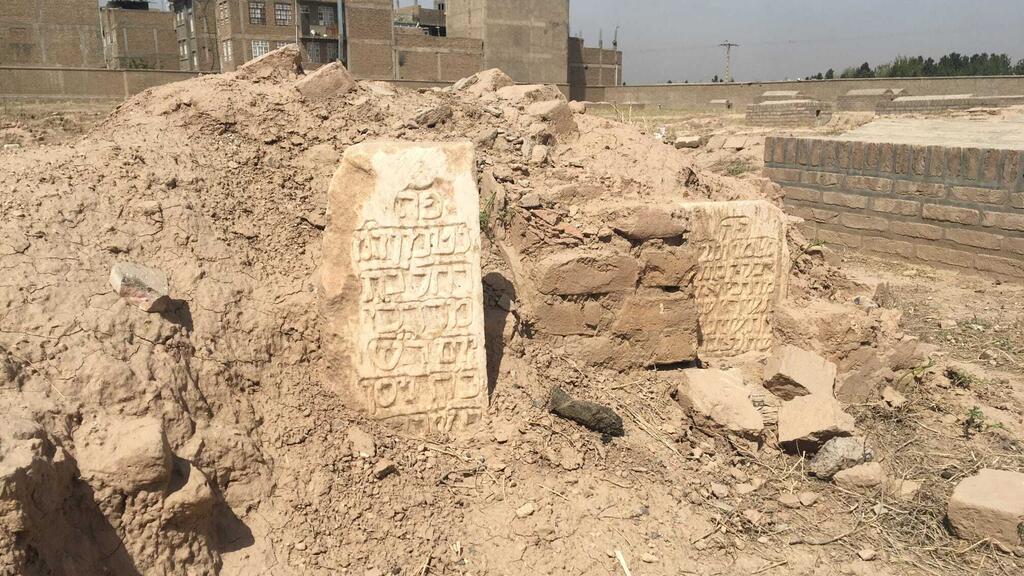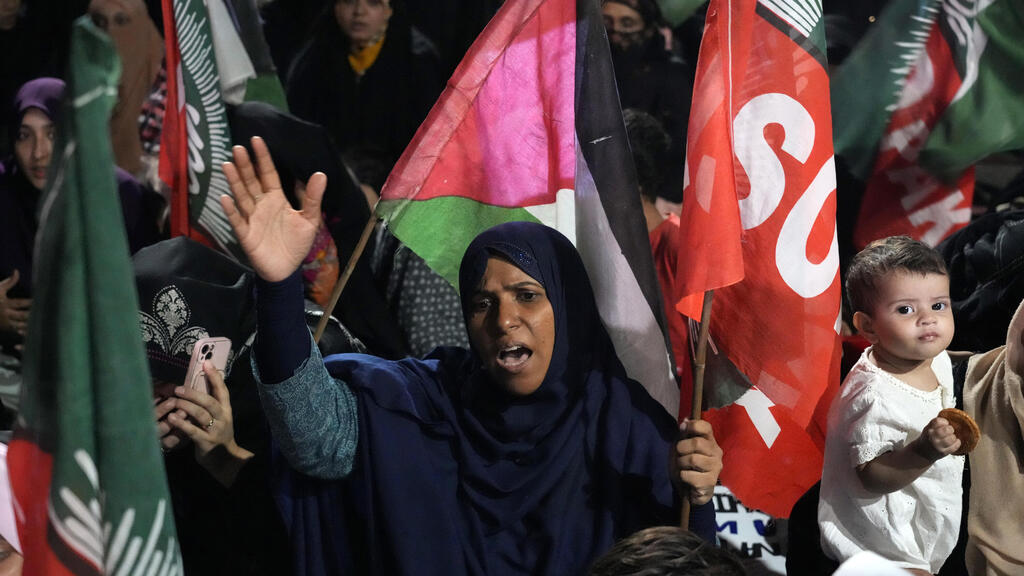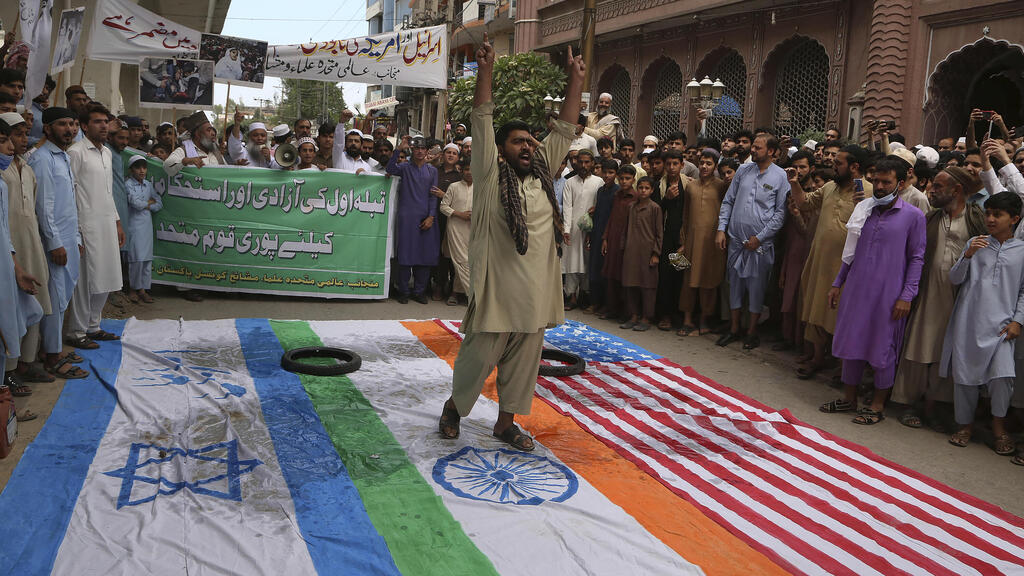Getting your Trinity Audio player ready...
Growing up in Afghanistan, Ehsanullah Amiri was taught to hate Israel. “I heard a lot of bad things about Israel, a lot of politically motivated propaganda by clerics, tribal leaders,” Amiri, a journalist who moved to Canada three years ago to escape the Taliban, said.
Since his childhood, much has changed for Amiri. Following the October 7 massacre, Amiri wrote many articles in Canada's National Post defending Israel’s right to protect itself. Those articles earned him a wave of hate mail and harsh responses — from his own community as well as Islamists in Canada.
Amiri’s experience with Islamic extremists piqued his interest in understanding the October 7 attack and Israel’s fight against terrorism. As a member of Afghanistan’s Hazara minority, he hoped to learn from Israelis how to stand firm against terror groups.
So when a friend told Amiri about Sharaka, a nonprofit organization devoted to promoting peace between Israel and the Arab world, he was curious, and he agreed to join a delegation visiting Israel for a week.
“I wanted to get to know Israel, the Jewish people, the nation and build bridges,” Amiri said. “We have a lot of wars in the region and in the world. Why not make peace?”
Sharaka’s mission to Israel this month brought nearly a dozen South Asian leaders together with their Israeli counterparts. The mission was designed to help participants collaborate on projects to influence communities in Israel, America, Pakistan and beyond.
The delegation visited several sites in Jerusalem’s Old City, received a briefing at the Knesset, toured the Yad Vashem Holocaust History Museum, visited southern Israel, and met with October 7 survivors, among other stops.
Dan Feferman, executive director of Sharaka, said that citizens of countries critical of Israel are increasingly interested in seeing another side of the story. “Sharaka’s ongoing work in bringing impactful delegations from the Abraham Accords countries and beyond shows the appetite for such bridge-building programs in the region,” he said.
Noam Meirov, Sharaka’s managing director, said that the Islamic diaspora is “very influential” in shaping events in the Middle East and in Western countries that Muslims have relocated to.
He described two camps of Muslims in the U.S.: one representing a radical stream of Islam and another supporting a more moderate form of the religion. The moderate camp believes in peace with Israel, even if it is sometimes critical of the Jewish state, Meirov said. He said that Sharaka’s focus is on empowering moderate Muslims and providing them with accurate information about Israel and tools to stand up for Israel.
“We saw that through engaging people to people, creating programs, studying about the Holocaust, [and] studying about radicalism in Israel [and] in the Arab countries, we found mutual allies in more countries,” Meirov said. He said that Sharaka has succeeded in shifting the narrative from a struggle between Jews and Arabs to a struggle between moderates and extremists.
Mubashir Ali Zaidi was another participant in the mission. A Pakistani journalist and writer now living in the UץSץ, he grew up amid anti-Israel sentiment much as Amiri did.
“They teach us that [Jews] are our enemy and Jews are not good people,” he said. “You are taught that you can travel anywhere in the world except to Israel.” Upon moving to the United States, Zaidi befriended members of the American Jewish community and quickly realized his perceptions were wrong.
After October 7, Zaidi wrote that Israel should wipe out Hamas once and for all “because otherwise there will be no peace.” That stance drew backlash from religious leaders in Pakistan who attacked him on social media.
“I thought I should go and find out the other side of [the] story, see what Israelis think,” Zaidi explained. He assumed he would have to wait until he obtained an American passport, but Sharaka was able to arrange entry using his Pakistani documents.
Zaidi described himself as neither pro-Israel nor pro-Palestinian. With more than 100,000 followers on Facebook and more than 15,000 YouTube subscribers, he said his goal was to understand the complete picture in order to share with his audience.
“I cannot convert people. I cannot convince more people, but I can tell them a story, and maybe 5 out of 100 people will think, okay, so we should study more, we should learn more about Israel, and maybe we were wrong,” he said.
Hina Akhtar also took part in the Sharaka trip. In Pakistan, Akhtar was a teacher, and since moving to Israel, she has worked in health care, serving patients from diverse backgrounds. She said her goal was to foster awareness and empathy about Israel and Jewish history. “My dad was a progressive Muslim, and he never stopped me from asking questions,” she said.
For decades, Akhtar felt uneasy when she thought about the hatred between different sects of Islam. After the October 7 attacks, that same feeling of unease resurfaced. “If we are all the children of Abraham, why are they hurting each other? What is the reason?” she recalled thinking. She also wondered why Muslims are “tagged as a violent nation.”
She joined the trip to try to find answers to those questions, help other Muslims challenge their misconceptions about Jews, and bear witness to the reality in Israel, she said. “I always thought there has to be another side of the story which is not being portrayed in the media,” Akhtar said.
Get the Ynetnews app on your smartphone: Google Play: https://bit.ly/4eJ37pE | Apple App Store: https://bit.ly/3ZL7iNv
While in Israel, Akhtar attended a Shabbat dinner at the house of a Sharaka leader. She described being struck by the parallels between Jewish and Muslim traditions and prayers.
“I am the kind of person who likes to do my own research,” Akhtar said, reflecting on her experience in Israel. “I am definitely going to take this forward.”





